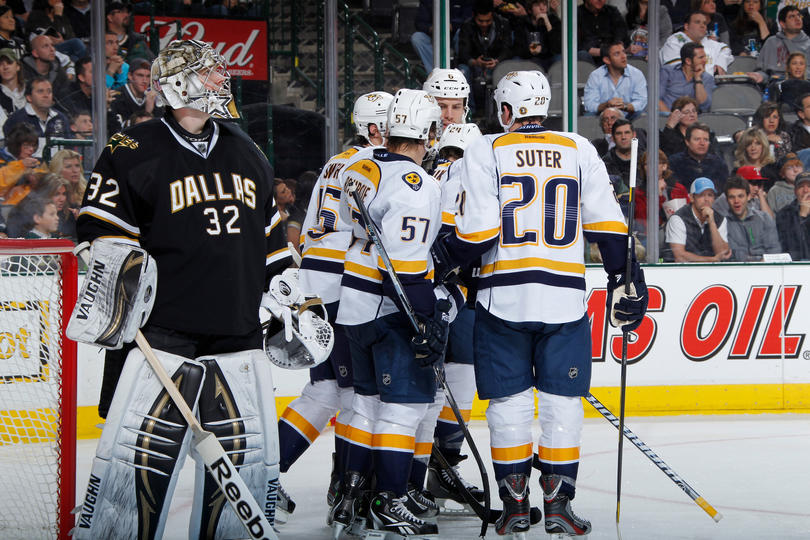Andy Dufresne famously said: “Get busy livin’, or get busy dyin’.” In the wake of the NCAA’s historic ineptitude regarding oversight, enforcement, and lately investigation worthy of Jeff Lebowski, people in and around collegiate athletics have suggested the National Collegiate Athletic Association’s century-long reign over this country’s college sports could be coming to an end.
Don’t hold your breath.
For 161 years, colleges have been competing in sports, and for 107 of those, the NCAA has been monitoring them through various means. From niche sports like water polo and fencing, to primary revenue generators like football and basketball, if there’s a game, match, or race involving a Division I, II, or III school, the NCAA has their hands all over it. However, in recent years their motives have been questioned, and in recent months their methods taken to task by the very institutions being alleged of wrongdoing.
For more than a year-and-a-half, the NCAA “investigated” the University of Miami based on allegations that a fraudulent financier infiltrated the athletic department leading to contact with, and payment to athletes participating in Hurricane athletics. Nevin Shapiro – the playboy for which the investigation surrounded – sang a tune of wining & dining, boarding, and “making it rain” on football, basketball, and baseball players either already, or soon-to-be competing on the campus in Coral Gables. Unfortunately for the NCAA, and fortunately for the University of Miami, a minimal amount of Shapiro’s allegations could be proven and due to such the NCAA was forced to turn to an unusual source for the information they so thirsted for … Shapiro’s attorney.
I know what you’re thinking: Isn’t that unethical? Yes, and while such would seem obvious to historical geniuses the likes of Sloth from Goonies, Biff from Back To The Future, and any number of Adam Sandler’s cinematic characters, for the entity specifically designed to outsmart the NCAA’s 1,281 members … not so much.
Mark Emmert, the relatively new president of the NCAA, came into office professing interest in restructuring the NCAA, enacting widespread reform, and remaining transparent. I would argue that during his tenure he’s 0-3. The NCAA remains as it was when he took over; reforms appear to be nonexistent let alone widespread, and ask Penn State about the transparency of their historical punishment. If you’re going to do something Mark, then walk the walk, but until I see some evidence aside from the incompetence in the aforementioned Miami case, I suggest you heed the advice of Shawshenk’s Andy Dufresne and either get busy living (Propose and implement the reform you discussed) or get busy dying (Go away and allow a modern-day alternative to the antiquated and inept system currently in place.).
Problem being; where would you start? The NCAA as we know it today oversees a rat’s nest of responsibilities that’d make a 6-year-old on his first fishing trip proud. Their rulebook ranks somewhere between one of Dante’s epics and the endless piles of notebooks in which John Doe documented his thoughts in Seven. In addition, they don’t have adequate staff to properly monitor the more-than-1,200 members operating under the aforementioned rule book, and enforcing the rules falls under no specific guidelines and due to such leaves past and subsequent rulings as a matter of interpretation.
What is “lack of institutional control?”
How do you separate the act of an individual from an act of the institution itself?
And who is a “third party” and how are they differentiated from a booster?
These are all questions relative to recent cases before the infraction committee, and all lack specific guidelines explaining to the members what’s what.
The NCAA is without a doubt a mess. The Miami case, coupled with the unprecedented punishment for a Penn State program who by definition broke no NCAA rule, are significant gaffes which have brought the governing body’s reason-for-being into question. Do they do some good things? Yes, after all, there’s significant organization involved with managing college’s 87 national championships and as long as they’re crowning a champion, they must be doing something right. But between the rules, the enforcement, and upcoming issues such as pay-for-play for the revenue-driven sports participants, the NCAA appears at a crossroads regarding their valuation and their existence as we know it may very well be on the line.
Would I like to see an alternative method to the current NCAA system in place? In a vacuum, without question. But will it happen and more importantly, is it feasible that it could anytime in the not-so-far-off-future? I wouldn’t count on it. The NCAA may be broken, but fixing it seems much more likely than trading it in for something shiny and new. In spite of a desire to do just that.
Add The Sports Daily to your Google News Feed!
